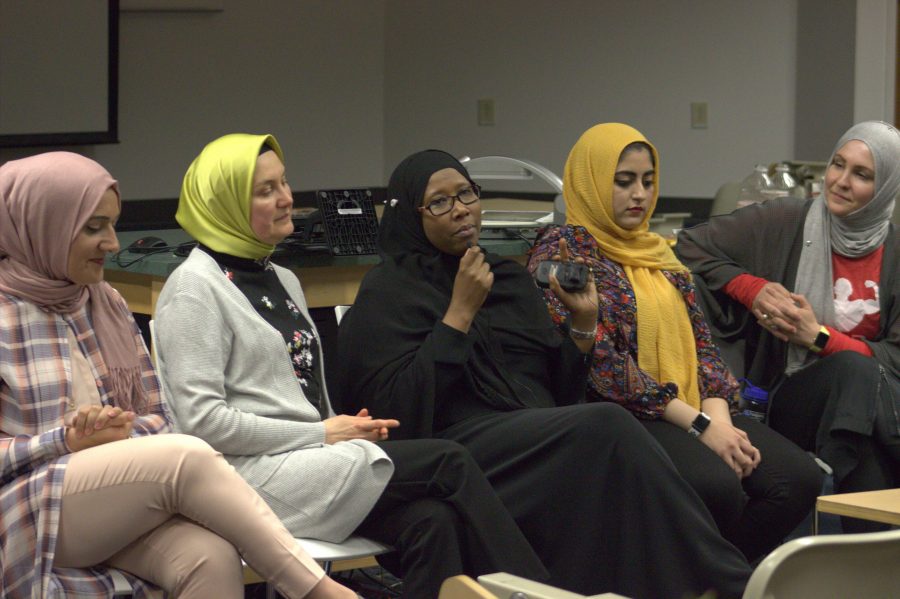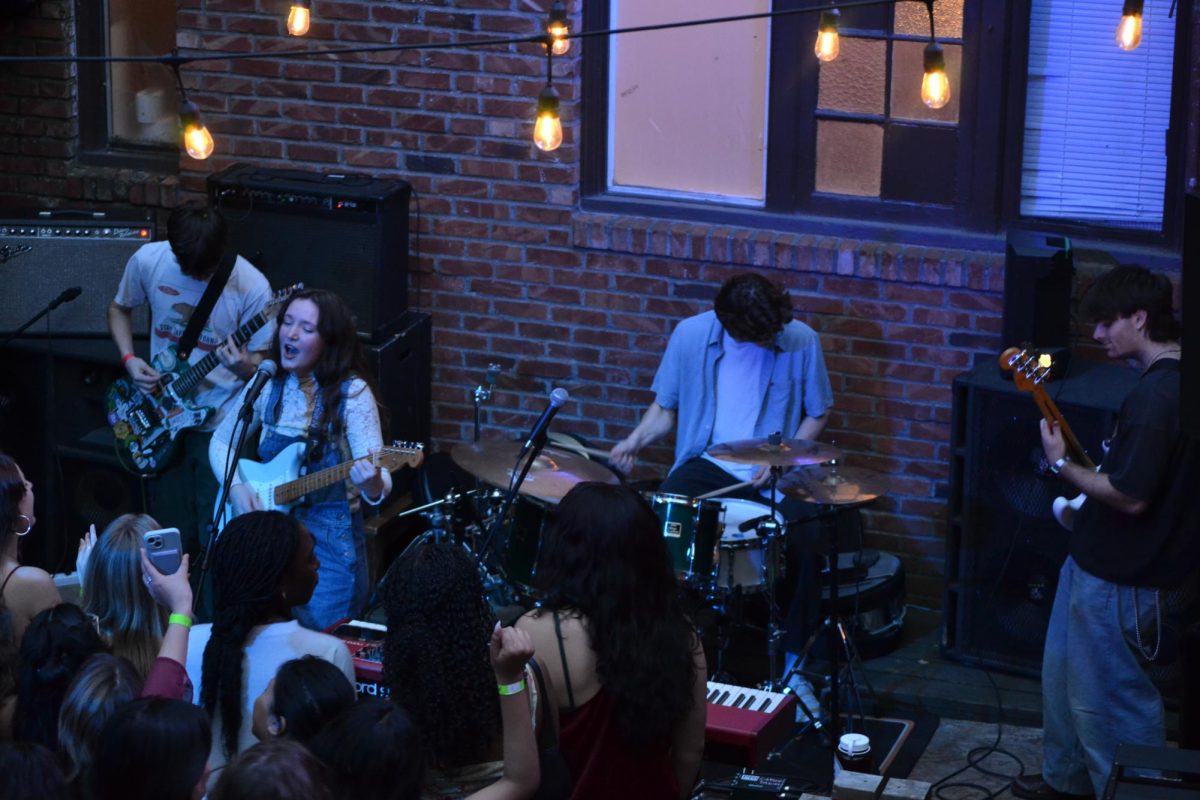American-Muslim women share stories of hardships and triumphs
For the six American-Muslim women that shared their stories on Friday, Apr. 5, the veil they chose to wear was only a part of their identity. Each woman provided a different insight into their life, sharing stories that ranged from seeking refuge in Afghanistan to starting a fashion brand in Seattle.
With a variety of backgrounds and stories, women were brought together by their faith and love for their communities.
Titled “Beyond the Veil,” the First Friday Colloquium event showcased a panel of women that came to share their unique experiences in America as Muslim women. Through these stories, each woman stressed the importance of taking time to acknowledge and love your neighbors.
Junior Emma Miskel recognized the value of taking time to learn about people’s experiences, especially people who we live in community with every day.
“We can’t just sit in our own bubble here at SPU, pretend like there aren’t cultures out there and groups of people who struggle through things that we don’t understand unless we hear others talk about it,” Miskel said.
While most women shared stories of their struggles, many stories of triumph and love were also passed around as the women reflected on times where they had shown and received compassion.
Miyase Katircioglu, a Turkish immigrant who now lives in Washington, spoke on a time when she was at the grocery store and a woman randomly approached her to offer her a hug. Another time, a man stopped her to share a word of encouragement.
“The political climate has alienated Muslims so much that some people are trying to break that,” Katircioglu said.
“This is why I made this place home for me, there are beautiful people.”
In Islam, as with Christianity, neighborly love in an important ideal to live up to.
Zarby Kakar, another panelist, told the story of a Muslim prophet who had garbage thrown on him every day as he walked to the Mosque.
When the woman who had been throwing the garbage did not appear one day, the prophet sent someone to look for her. After learning that she was sick, he came back to care for her, despite all she had done to harm him.
This story, according to Kakar, illustrates an important aspect of the Muslim faith.
“My faith has taught me that my neighbor has right over me, to love them, to care for them, to make sure that I take care of them in whatever way that I can,” Kakar said.
On Saturday April 6, students also had the opportunity to visit a mosque in Redmond where another panel of American-Muslim women answered questions and shared experiences.
Attendees were able to share a meal and participate in prayer with members of the Muslim community. Many SPU students attended, as well as over one hundred other community members.
Sophomore Emma Friesen attended both events, and gained something different from each. On Saturday, she learned how to be a better ally. From the colloquium, she recognized the importance of hearing narratives that counter one’s own preconceived ideas.
These preconceived ideas can often lead to harmful incidents of discrimination.
Despite the many stories of love and hope that the women shared, violence against Muslims is on the rise in American society. According to an FBI report, hate crimes against Muslims rose 67 percent between 2014 and 2015, the largest rise since 9/11.
With the influence of politicians and media, Friesen believes that people need to recognize that their opinions may be altered by things that are rooted in misinformation.
“Really question ‘what things am I holding because I actually know them and what things am I holding because this is the image that American Muslim women that I have had because of my culture?’” Friesen said.
For Friesen, being a good neighbor requires a person to step out of their comfort zone and intentionally make sure that people feel as if they belong.
“Practice radical hospitality, practice radical belonging and inclusion,” Friesen said.
“Make sure that people feel as if they are welcome, and that they know that are not excluded and that their differences do not mean that we cannot be in community together and learn from each other.”

















































































